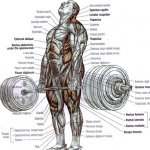There are a few things that need to happen in order to produce muscle growth. You need to use significant load when lifting weights Enough time under tension to create structural damage to the muscle tissue Enough stimuli to up-regulate anabolic hormones and increase protein synthesis Proper recovery and workout nutrition Many people often think that if they lift as heavy as possible, or use as much volume (sets and reps) as possible they will […]
Why Fiber is so Important For Digestion
What is fiber and are you getting enough fiber in your diet? Fiber is a complex carbohydrate that our body does not digest. Fiber can be divided into two general groups, soluble and insoluble. The main difference between these two is that soluble fiber can absorb water while insoluble fiber does not absorb water or dissolve in water. 
This means that when consuming foods rich in soluble fiber, it helps to keep our stools softer and pass more easily and foods rich in insoluble fiber helps to add bulk to our stools. Not only does fiber play a significant role in maintaining healthy digestion but also reduces the risks of cardiovascular diseases, gastrointestinal disorders, diabetes, high blood pressure and lowers cholesterol levels. Fiber can also help to reduce body fat by keeping you satiated and eating less.
In the U.S., almost 50% of the average diets are comprised of refined sugars, oils, dairy, and alcohol, all of which contain no fiber. That means almost 75% of people are not getting enough fiber in their diets. Adequate fiber intakes vary based on age and sex differences but a good range for fiber intake for men is about 40-45 grams per day and for women about 30-35 grams per day.
It is important to consume both insoluble and soluble fibers each day. Some foods rich in soluble fiber are oats, nuts, seeds, berries, and prunes. Some foods rich in insoluble fiber are broccoli, brussel sprouts, apples with the skin, beans, and barley. Getting fiber from fruits, vegetables, nuts, and whole grains is much better than consuming fiber supplements or fiber-enriched foods because they do not contain the micronutrients, phytochemicals, and water found in whole foods.
Be sure to slowly increase fiber intake to allow your body to get used to it and drink plenty of fluids to avoid uncomfortable digestive symptoms such as gas, bloating or constipation.










Leave a Reply